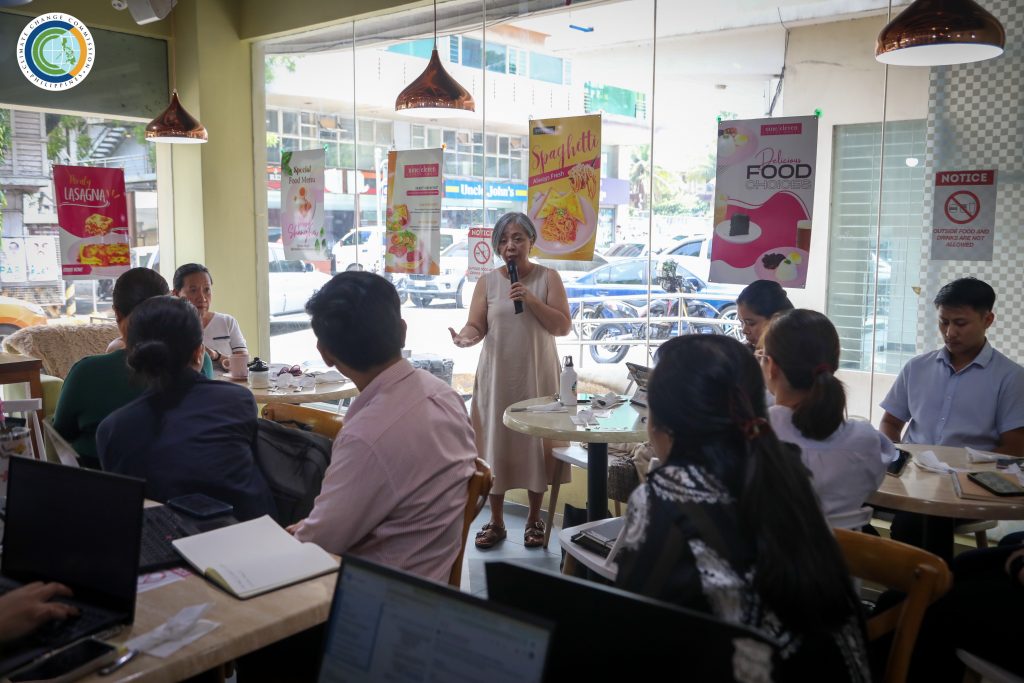
MANILA – In every game-changing performance—whether on the court, the field, or the front lines of public service—there is one constant: training. It’s the invisible engine behind visible victories. Athletes train to develop strength, build resilience, and refine their form. In the same way, training in the workplace serves as a roadmap to transformation.
The Climate Change Commission (CCC) sees training as more than just a box that you check off. It’s a strategic step toward climate resilience. As the impacts of climate change accelerate, the CCC’s commitment to the development of its personnel has become not only a foundation of organizational growth but a lifeline for our future and that of our planet.
Climate change demands more than compliance
The climate crisis is a lived reality. Tackling it requires more than policy documents and press releases. It calls for innovation, integration, and continuous learning.
Recognizing this, the CCC integrates capacity building as a core part of its mandate. These development programs allow personnel to step back from daily routines, refresh their perspectives, and gain advanced, science-based knowledge essential for shaping adaptive and forward-thinking climate policies.
“Training is essential. At the Climate Change Commission, we highly value these learning opportunities because they equip the agency to face the climate-related challenges our country encounters, adopt new knowledge, and develop strategies as part of our climate response,” Robert E.A. Borje, vice chairperson and executive director of the CCC, emphasized.
Building capacity, brick by brick
Through a series of focused programs, the CCC enhances internal systems and builds the backbone of effective climate governance.
Take the Complete Staff Work (CSW) training, for example. This initiative improves coordination, analytical rigor, and institutional efficiency. It enables teams to move beyond reactive problem-solving and toward anticipatory, strategic planning.
Meanwhile, the Open Government Partnership (OGP) training brings transparency and citizen engagement to the forefront. By grounding governance in openness, it fosters trust and invites communities to co-create solutions—an essential approach when responding to climate impacts that cross all sectors and borders.
Then there’s Power 101, a workshop that connects the dots between energy policy and climate resilience. By deepening knowledge of the energy sector, it empowers staff to help craft policies that promote efficiency, reduce emissions, and support sustainable development.
Each program shares a common goal: to prepare CCC personnel for the complex, high-stakes decisions that climate action demands.
Knowledge as a tool for action
As a knowledge management agency, the CCC invests in workshops that improve data storage, organization, and analysis. Climate science, after all, is only as strong as the data behind it. These efforts ensure that the Commission’s decisions are grounded in facts, not assumptions, to turn raw information into impactful policy.
The CCC also fosters inter-agency and cross-sectoral collaboration, understanding that climate solutions cannot operate in silos. These interactions don’t just build capacity—they build community among public servants who work toward a shared national and global goal.
A culture of continuous learning
The CCC’s approach reflects a deeper truth: that in the face of a rapidly evolving climate landscape, standing still is not an option. Personnel development is not a bonus, it is a necessity.
“At its core, staff development prepares individuals to meet today’s complex challenges with clarity, competence, and confidence,” Borje notes. “We will remain committed to continuous learning and to improving our work, guided by the vision of President Ferdinand R. Marcos Jr. for a climate-smart and climate-resilient Philippines.”
Investing in people, building a future
In the end, what the CCC is doing goes beyond professional training. It’s cultivating a culture where learning leads, strategy follows, and action inspires change. By investing in people, the Commission is investing in the country’s and, ultimately, the planet’s future.
In the race against climate change, it is not only about how fast we move, but how wisely we train the ones who lead the way.
